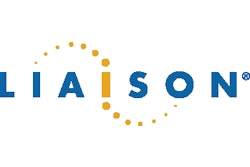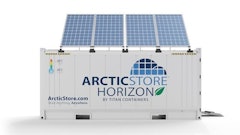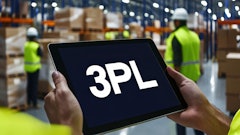
Data is an incredibly valuable commodity for retailers. Forward-thinking retailers are finding new ways to apply the increasing volume of information that is flowing into their companies from multiple sources. But when customers entrust their personal and financial information to a store or online vendor, they are also passing along the responsibility to keep that data safe.
With sensitive data like credit card information coming at retailers from multiple directions, and with regulatory and compliance obligations increasing, retailers are feeling the pinch as existing information management and data protection strategies are no longer able to handle the volume and diversity of sources. That’s why retailers are looking to solutions like tokenization deployed on a Big Data framework.
Tokenization, a popular security strategy, allows retailers to substitute a confidential data element with a non-sensitive equivalent that is unique, but less vulnerable to exploitation by hackers. But now that the volume of data is increasing exponentially, retailers are better served by tokenization solutions deployed on a Big Data framework instead of a traditional relational database.
What difference does the data framework make? A Big Data framework can expedite transactions dramatically and improve scalability with a secure processing platform that can take on rapidly growing volumes of data. That makes the system more flexible and secure.
Think about a retailer who wants to bring a new customer on board and needs to be able to process tens of billions of gift cards. With a Big Data framework, the time it takes to complete a tokenization process (called latency) is reduced, while the amount of sensitive data successfully moved in and out of the tokenization system (called throughput) is increased.
A Big Data framework is faster because it enables distributed processing: Instead of processing data on a single server, a Big Data strategy allows a cluster of servers to work simultaneously to crunch the numbers, which minimizes latency and maximizes throughput. A retailer with a Big Data-deployed tokenization solution could see token acquisition time reduced to approximately 40 milliseconds.
Another advantage retailers can expect with the right Big Data-deployed tokenization platform is the ability to secure tokens for an array of data types. That means that, in addition to allowing retailers to securely process financial information, such as credit card data, the Big Data tokenization platform would also enable retailers to protect other types of identifying information, like Social Security numbers.
There are other benefits to deploying a tokenization solution on a Big Data platform, depending on the partner the retailer selects. One important feature to look for is off-site vault storage. This approach gives retailers access to sensitive data, as well as critical backup and recovery services. A traditional vault-less database approach can expose retailers to security problems. Vault storage allows retailers to scale up to manage bulk requests, while securely processing and storing high volumes of data from multiple sources.
Another major benefit of using a Big Data-powered tokenization platform with vault storage is that it can eliminate the requirement to maintain PCI standards for downstream systems, such as ordering and shipping. With this approach, retailers can manage in-store or online transactions without storing sensitive financial data in their systems, using a token for fast retrieval from the vault instead.
The emergence of Big Data as a tool for innovation and discovery is well documented. Big Data also has many applications that can improve daily operations. And as these examples illustrate, a Big Data platform can help retailers scale up to meet increasing demands for tokenization, providing the security and speed today’s companies need to deliver an excellent customer experience.
Shabih Syed is the director of product management at Liaison Technologies. Syed is a seasoned software executive with more than 11 years of experience in defining the strategic vision and roadmap of enterprise software products and in driving go-to-market execution by leading cross-functional teams in engineering, services, support and marketing. Syed leads the product strategy and roadmap for the Liaison ALLOY Platform, which is the first Big Data platform-as-a-service (dPaaS) solution available in the market.
















